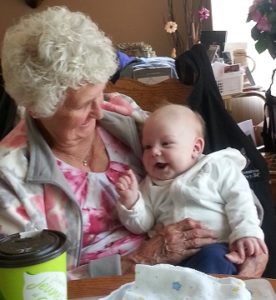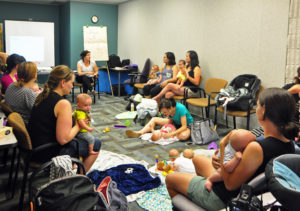Your other relationships can change too, as your parents become grandparents, your siblings become aunts and uncles, and your friends adapt to you becoming parents. After the initial excitement over the new baby, family and friends may visit less often. The new parent (most often the parent staying at home in the early months) can start to feel lonely and isolated. The same social networks may not be there – work colleagues are still busy at the job, social friends who don’t have children yet may not understand the changes in your life and why you aren’t as available as you used to be.
Grandparents And Extended Family
The addition of a baby to a family has an impact on more than just the immediate parents. Grandparents, uncles and aunts are also created and it often takes time for everyone to become comfortable in their new roles. There is often a ripple effect as a change in one generation changes the relationships in the other generation.

The transition to the role of grandparent is not a decision of the grandparent, it happens to them. The role of the grandparent has changed over the generations and across cultures. Each grandparent needs to define their own role, and this can vary with the age and stage when they become grandparents.
Challenges new grandparents could face are:
- Unvoiced expectations surrounding the role of the grandparents may lead to hurt feelings and conflict. New boundaries have to be negotiated and this isn’t always easy.
- Grandparents may have trouble seeing their own children as capable adults and giving up their role as “the parent”.
- Grandparents may not understand that their attempts at helping or suggestions may be seen as criticism by the new parents.
The new parents can help grandparents find their new role by:
- Communicating their hopes and expectations clearly.
- Letting the grandparents know if offers of help or suggestions are appreciated.
- Remembering that attempts at helping and suggestions are done out of love and concern for the baby.
- Encouraging them to attend a grandparenting class to help ease this transition.

Setting Limits with Visitors
With the birth of a baby, new parents are often inundated with visitors. While this is an exciting aspect of the postpartum period, it can also be challenging and exhausting.
Some coping strategies may be:
- Before the baby arrives, discuss strategies to manage visitors both at the hospital and at home in those early weeks.
- Say “no” if it is not a good time to visit (even if it is at the last minute)
- Have a “baby is sleeping” sign to prevent people from visiting unexpectedly
- When people visit in the early weeks, have them bring food or help with another task such as folding laundry or sweeping the floor
- When people visit, tell them up front how long they can stay (“then I have to take a nap”)
- Schedule a “meet the baby event” at someone else’s house a week after the baby is born to eliminate a steady trickle of visitors
- Use the “smile and nod” technique for unwanted advice
- When the “novelty” of the new baby has passed and visits from friends and family decrease, this can be a relief, but can also leave new parents feeling unsupported. It can help to develop new support networks with other new parents
Support For New Parents
Parents who know how to access resources for parents in the community are more likely to feel supported and manage the transition to parenthood better.
Resources for parents include:
- Baby friendly places to do adult activities like eat out, meet friends for coffee, or socializing
- Books, websites, and apps that normalize parenting and provide information on positive parenting strategies
- Ways to get exercise with a baby
- Ways to meet other parents in their neighbourhood
- Classes and other learning opportunities as baby grows
- Where to get help if experiencing physical or mental health issues
Support Networks
The parent who is staying home with the baby can experience a loss of work-related social relationships. Extended family may be unable or unavailable to provide support. Having a support network is important for emotional support, to avoid isolation, and to normalize the experience of being a new parent. New parents often express that having a support network of other new parents is extremely helpful in normalizing the experience and gaining support.

New parents can:
- Seek out and build relationships with other new parents in the community at local parks, community centres and local online groups
- Attend parenting and drop in programs to meet other new parents e.g. family resource network, local library, leisure centre, etc.
- Join parent and baby fitness classes e.g. swim with baby, yoga
- Use technology to connect and help maintain relationships and receive support with extended family members that live far away